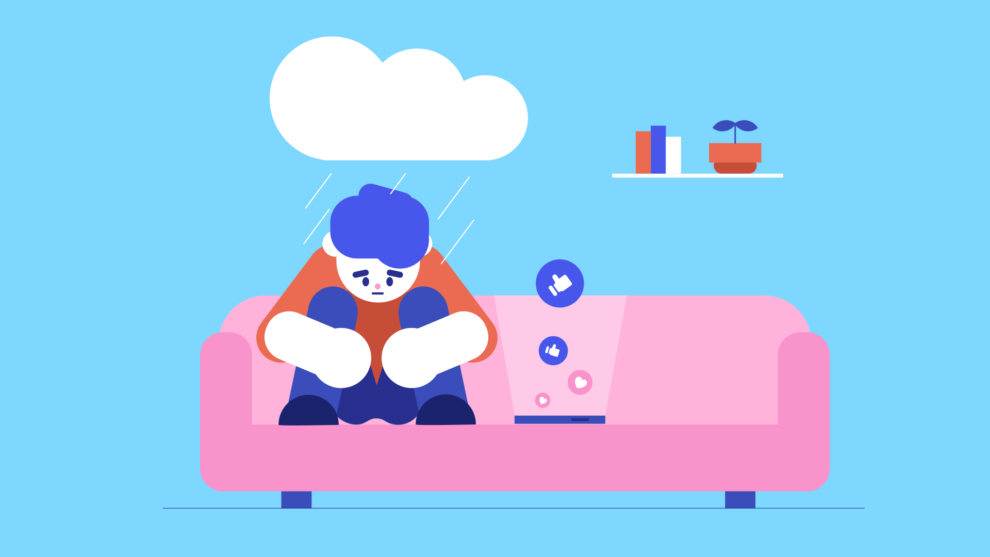Technology has revolutionized how we interact with the world and other people. Thanks to technology, business, education, finance, and even social interactions are in better shape.
For instance, technology has made it easy for students to search for professional academic writing services that can help them write my research papers and essays by simply using Google and getting thousands of search results instantly. However, while technology has brought many benefits, it has also increased loneliness and social isolation.
In this article, we examine critical ways that technology has been connected to social isolation and how these changes escalated during the pandemic.
4 Ways Technology Contributes to Social Isolation
Here are some of the proven links of technology to social isolation:
Substitute for Real Relationships
Social media usage has altered the scope of one-on-one interactions among people. Tech channels like FaceTime, Facebook, and Instagram allow people to instantly connect with their friends, colleagues, and strangers worldwide.
Regardless of how close or distant your relationships are, you can keep in contact using social media. More people turn to social media to maintain close relationships with their friends and family. Even though social networks augment physical interactions, they can become a barrier to sustaining genuine relationships.
A recent survey revealed that 27% of active internet users spend less time talking with family and friends over the phone, 15% spend less time physically with friends and family, and 13% spend less time in events outside the house.
This suggests that although more people are fixated on digital screens daily, they connect at a smaller scale than before. More virtual connections also risk excessive reliance on role-playing for effective communication and leave little room for genuine interactions.
Work/Studying Invades Privacy
After many months of living through COVID-19, people have grown used to working and studying from home, which often requires heavy internet use. With many hours spent at home typing away at a computer or attending meetings, loneliness can unsuspectingly creep in.
Many remote workers and students have successfully integrated a work-life or study-life balance by carving out special home offices or study spaces inside the home. Most learners maintain a study-life balance with the help of first-class paper writing services like DoMyEssay, which they find on reliable essay review site platforms. And workers configure their office computers to receive private mail or do personal shopping with office WiFi.
However, this arrangement can interfere with the personal and social parts of your life. But does this mean remote work or learning is a disadvantage? Certainly not. It only presents the 9-5 alternative as a better work/study option because it allows you to segment your time for official and private responsibilities.
Technology syncs your daily activities into one space for easy access. Still, it only increases how much people rely on tech, dampening their need for physical interactions. Over time, such people grow bored and become isolated after a while.
False Sense of Living
Social media encourages users to display only the best versions of their lives, which broods unhealthy competition among teens and young adults. As you constantly scroll through your Instagram feed or check updates from friends and celebrities, you may feel out of the loop for having a mundane life.
Even though technology has broadened our choices of diverse networks and views, it is evident that the abundance of options hinders our ability to make decisions. As a result, people have thousands of friends and followers online but still feel lonely and stressed.
The best way to handle social pressure is to sustain healthy self-esteem outside social media. You must develop friendships, career interests, and life expectations beyond internet standards. Then, you can use smartphones and the internet to harness your true potential and share it with the world.
Online Communities/Forums
Online communities like Quora and Reddit have been around for a long time, but they gained popularity during the pandemic, especially for people seeking social support in combating social issues.
Although online support forums are brilliant, they may not effectively cater to the social needs of older adults, unmarried people, or low-income earners.
These platforms have limitations. Excessive reliance on them for communication can create a false sense of reality, as well as echo chambers. In addition, high-risk individuals will become socially estranged and lonely due to a lack of genuine connections.
Reports show that 37% of adults with some sort of physical or cognitive limitations feel socially isolated compared with 15% of adults who don’t have such challenges. Spending more time indoors with little or no access to technology for work or leisure can trigger feelings of depression and emotional instability.
Also, single adults or long-distance relationships can experience social isolation compared to married or booed-up folks. Online forums are not totally a bad idea. However, they must be inclusive of all groups to produce tremendous results.
Conclusion
It’s a privilege to be in the age of smartphones, tablets, and wireless communication, where our interactions are more diverse, limitless, and evolving. Humans are using consumer technology to become more social than ever, but somehow loneliness lingers.
The best solution is to use technology to complement your physical interactions and enhance how you stay connected with people for real. You can host physical events and invite virtual community members.



















Add Comment